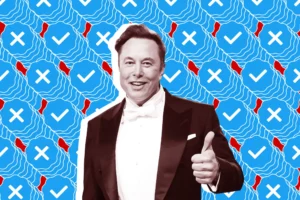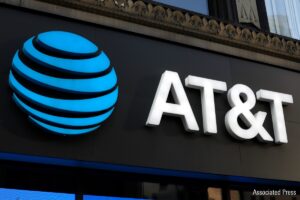If a customer maintains an average minimum amount or has their paycheck directly deposited, for example, most banks provide free checking.
According to a 2023 Bankrate.com survey, 73% of those who have checking accounts use the feature.
But if banks follow Chase’s example and their regulatory expenses rise, free services like checking might disappear. Chase Bank CEO Marianne Lake hinted last week to the Wall Street Journal that the bank may stop providing free checking and other free banking services.
“The foundation of consumer banking is the free services that banks offer to customers, including debit cards, checking accounts, and online bill payment. Jaret Seiberg, a financial services analyst at TD Securities, analyzed Lake’s remarks and stated, “The model then depended on banks being able to recoup those costs elsewhere in the consumer banking business, such as with debit interchange fees, overdraft fees, late fees, and higher interest rates.”
For example, the Consumer Financial Protection Bureau has finalized a rule capping late fees on credit cards at $8. However, because it is pending litigation, it is not yet in effect. The CFPB has also suggested capping the amount of overdraft fees banks may charge their clients. In addition, it is anticipated that the Federal Reserve would further restrict the amount that banks are able to charge retailers when clients use their bank debit cards to make purchases.
Although banks, particularly smaller ones seeking deposits, might still need to provide incentives to draw in consumers, one consumer advocate believes that if their bank does charge a fee for checking accounts at some time in the coming years, consumers won’t be packing up and leaving.
A marriage might not survive as long as a bank account.
“People often stay in their bank accounts longer than they stay in their marriages,” said Adam Rust, the Consumer Federation of America’s director of financial services.
Evidently, Rust is either kidding or not kidding. According to research by Bankrate, the typical American customer has owned the same checking account for almost 18 years. When the Census Bureau last checked in 2009, the median length of first marriages that end in divorce was eight years.
In a poll conducted by Bankrate, respondents gave their bank loyalty for the following three reasons: “Happy with customer service,” “Always had the account,” and “Convenient branch or ATMs.”
In addition to these arguments, Rust offers additional element that can discourage customers from switching banks for any reason: It may seem like more trouble than it’s worth to break away from Old Faithful when there are automated bill paying choices available. He pointed out that your bank account records might contain information on ten to twenty service providers that you pay on a daily basis. Therefore, you could have to manually switch them all over if you were to switch banks.
Besides, it would not be all that bad if you have to pay a small fee for your checking account, he said. This is particularly true if your bank is adding one because it will have less room to charge you for other services, such as overdrafts.
This is due to the fact that upfront pricing is more clear than receiving unexpected, increased costs at the back end. Furthermore, you do receive something in return for the checking charge. According to Rust, “a bank account is very useful.”
Bankrate reported that the average overdraft fee was approximately $27 in the previous year, with some banks charging as much as $38. Conversely, the average cost for interest-bearing checking accounts was $15.33. Furthermore, the typical charge for checking accounts that do not bear interest was only $5.31.
Of course, unless you have a sizable sum, you might want to completely avoid the interest-bearing option if your money is with one of the biggest retail banks in the nation, like Chase. The reason behind this is because, even though credit card rates are at all-time highs due to the Federal Reserve’s rate-hiking campaign over the last two years to control inflation, the average interest paid is only about 0.01%.
All being said, if a bank’s regulatory expenses remain the same due to strong opposition or the success of legal challenges, your free checking options might not go.
Alternatively, if those expenses do increase, certain banks might choose not to stop offering free checking for a variety of reasons. The Credit Card Accountability Responsibility and Disclosure Act (CARD Act), for example, reduced certain fees and interest charges after it was passed in 2009. The Consumer Financial Protection Bureau (CFPB) reported in 2015 that “total costs to consumers have fallen… and credit has generally become more available to consumers.”



